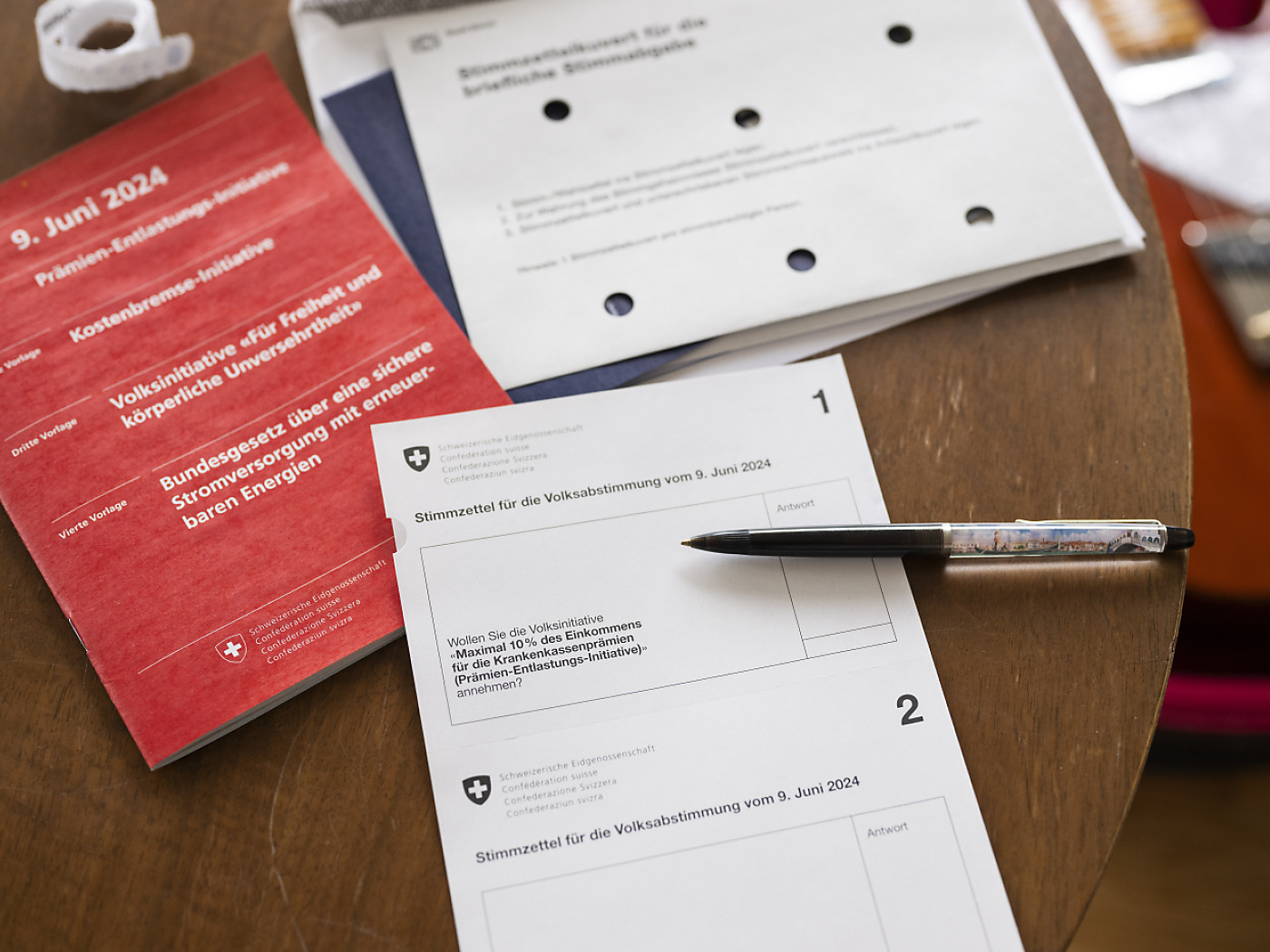
Content of voting booklet found to often decide Swiss votes

The content of the voting booklet sent to Swiss households makes a difference of more than 15 percentage points on voting behaviour and hence voting results, according to a survey. This percentage is almost always decisive.
+Get the most important news from Switzerland in your inbox
The effect concerns voters from all political camps, shows the study, led by political scientist Oliver Strijbis. The content of the poll booklet, however, has the greatest influence on voters in the political centre.
“Those who vote at the poles generally have a more preconceived opinion and are less open to other arguments and messages,” explains communications strategist Marianne Affolter, director of Kampagnenforum, which commissioned the study to determine the possible effect of voting documents.
+ Swiss found to be gullible regarding fake news
“The results analysed show that opponents and supporters should pay as much attention as possible to the wording of the text in the voting documents,” Affolter said.
“The text in the voting booklet must be simple and non-polarising. Many voters only marginally follow the public debate and would decide in a matter of seconds whether to vote yes or no on receiving the voting material. There’s no need to try to mobilise supporters or convince opponents in the home stretch.”
What content has what effect?
“The fact that voting documents have such a significant causal effect on the voting behavior of Swiss voters is new and has been demonstrated for the first time”, Strijbis said.
In his view, the magnitude of the effect is “surprisingly large”. In a second stage, a follow-up study will determine which content produces which causal effect.
“As it is precisely in the case of popular initiatives that the framing of the voting text reflects the position of the Federal Council, counter-arguments must be refuted without being repeated. It’s not easy, but it can be done – and it can gain several percentage points of approval. It is precisely these percentage points that can make the difference at the ballot box,” Affolter said.
The study was carried out in June 2024 in the form of an online survey (CAWI) with a stratified sample of over 1,100 people from the Swiss voting population. Age distribution, gender, language group and education correspond to those of Swiss voters.
Translated from French by DeepL/ts
This news story has been written and carefully fact-checked by an external editorial team. At SWI swissinfo.ch we select the most relevant news for an international audience and use automatic translation tools such as DeepL to translate it into English. Providing you with automatically translated news gives us the time to write more in-depth articles.
If you want to know more about how we work, have a look here, if you want to learn more about how we use technology, click here, and if you have feedback on this news story please write to english@swissinfo.ch.

In compliance with the JTI standards
More: SWI swissinfo.ch certified by the Journalism Trust Initiative

























You can find an overview of ongoing debates with our journalists here . Please join us!
If you want to start a conversation about a topic raised in this article or want to report factual errors, email us at english@swissinfo.ch.